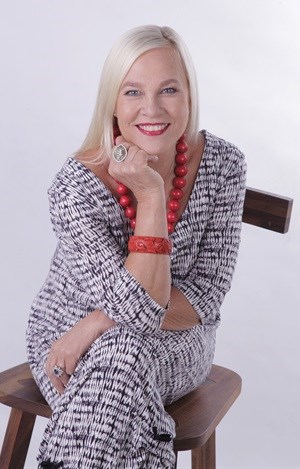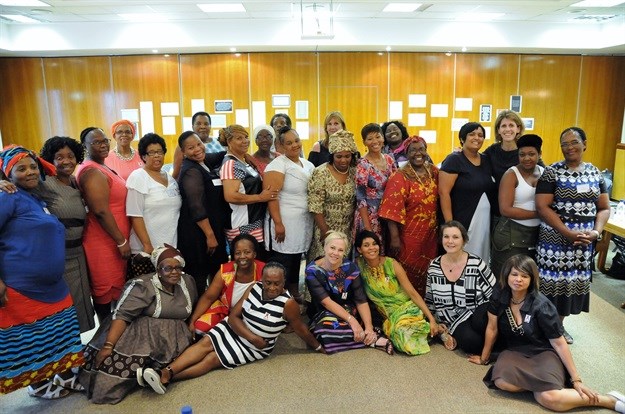South Africa's employment rate is currently sitting at an average of just over 25%, peaking at over 27% at the end of 2016. While that figure decreased at the start of 2017, the fact remains that a quarter of South Africa's citizens remain jobless. We are at a critical time in our economy where food prices continue to rise and jobs are scarce. Can community projects possibly help both of these needs?

Prof Elain Vlok, founder of Clover Mama Afrika
I think they can, albeit on a small scale. Based purely on the success of the ‘mamas’ under the Clover Mama Afrika wing, we have witnessed the positive impact of community projects. I started Clover Mama Afrika in 2004, with a passion to implement change and set up a corporate social investment initiative that both Clover and I could be proud of. During the last thirteen years, I’ve watched as our efforts to help communities have developed into successful small businesses, creating jobs and sustaining communities at the same time.
Employment opportunities
To date, we’ve appointed 43 women as part of the project - we call them ‘mamas’ due to the nurturing role they fill in their communities. These mamas serve as examples of how community projects can both support a community and provide employment opportunities.
Take Mama Selestien Moses for example. She became a Clover Mama in April 2007. Mama Sella runs the Khayalethu Care Centre in Ashbury in the Western Cape. As part of our commitment to her, Clover Mama Afrika provided her with the skills, equipment and training that she needed to further develop her community project. She’s since grown her centre’s capacity, caring for more than 300 children and over 80 elderly. She now supports her community with a variety of additional skills, from bread baking, catering and flower arranging to sewing. Mama Sella currently employs 17 people and has transferred skills to over 400 others in her community.
Opportunities at grassroots level
Another prime example is Mama Shirley Merime of Ennerdale, Gauteng. Mama Shirley joined Clover Mama Afrika in 2006 to upskill herself and others at her Ebenezer Hannah Home - a home that looks after both the elderly and orphaned and abandoned children. Through the training received from our team she’s helped to further upskill another 137 people and now employs 11 permanent staff at the home.
While employment can be difficult to find, these mamas provide opportunities at grassroots level. This means employees don’t need to have degrees or to travel far in search of work. Community projects give people with little skill the chance to grow and thrive.
Virginie Merime, daughter-in-law of Mama Shirley, is one of the many people positively impacted by Clover Mama Afrika’s involvement. Merime helped her mom-in-law with the day-to-day needs at the centre, where she was able to take part in courses and skills workshops we helped to provide. We saw her keen interest in cooking and through our friends at MLK Chef School and the financial assistance of Clover Mama Afrika, Merime won a fantastic Chef’s course to help her follow her dreams.
Support small community businesses
These women show us that community projects or small businesses that are run with passion, by owners who are committed to the development of their communities can certainly make a difference. The 28 employees between Mama Sella and Mama Shirley alone are testament to this. Small businesses can help communities at grassroots level; providing necessities in the area while offering work opportunities for its people.
I urge you to support small community businesses - you’ve no idea how much of an impact you can make and how many lives you’re touching.
















































